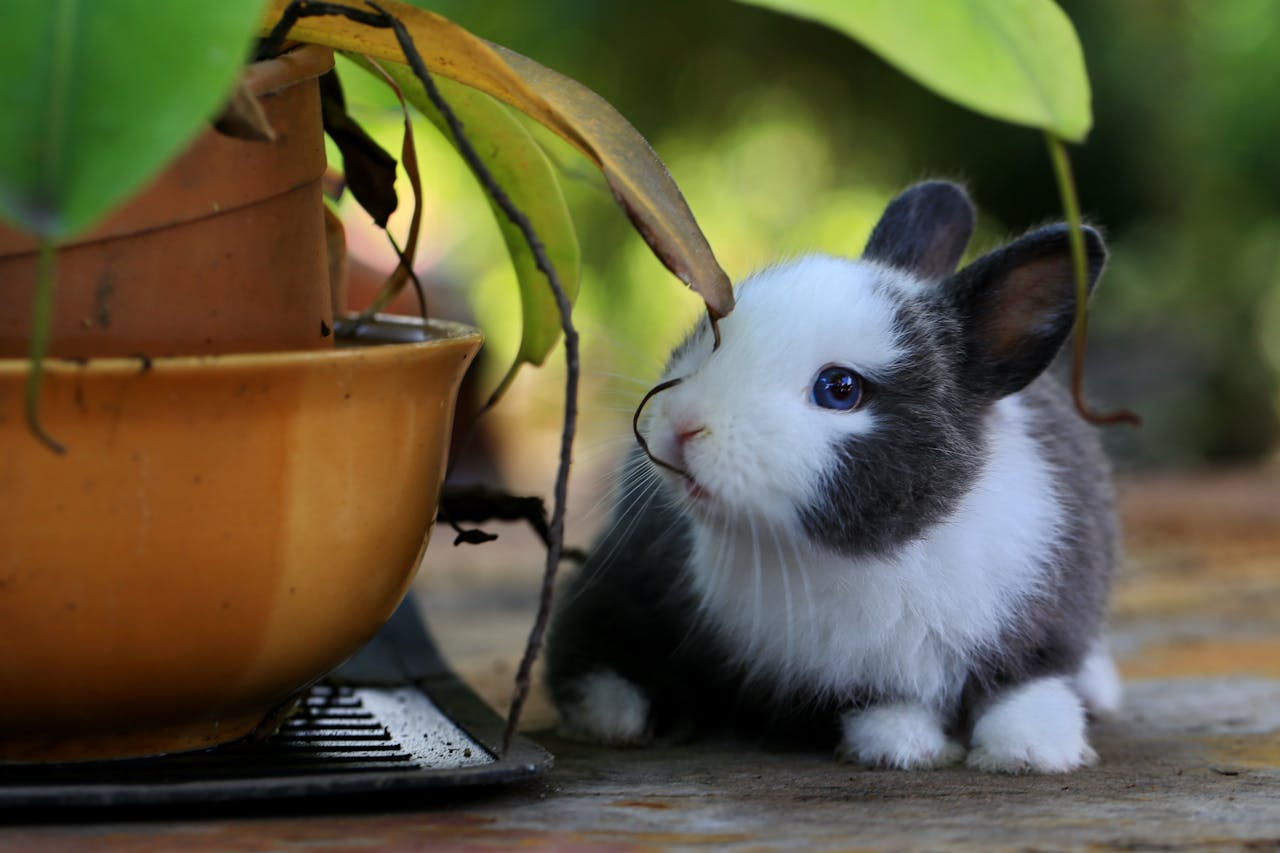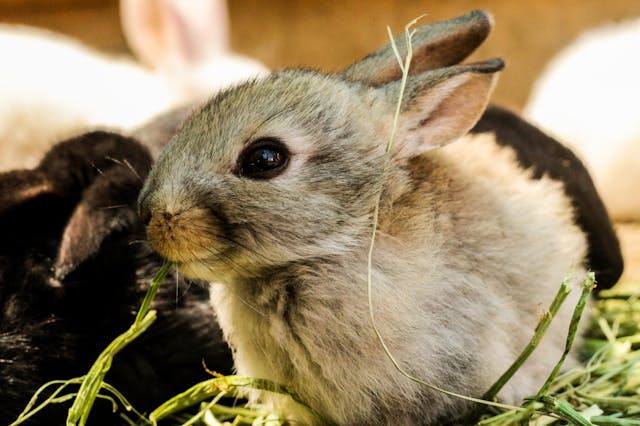Taking Care of Baby Rabbits- Complete Guide for You

Taking care of baby rabbits can be tough coupled with time and patience. It can never be taken lightly when taking the bold steps to handle these young rabbits. We are glad to give you a simple guide to keep the mother rabbits and the young ones from falling sick or dying easily.
This article will be your source of information to come back every time when it comes to handling baby rabbits.
What you must know is that the mother rabbit may feed the baby rabbits only once or twice a day. If the mother rabbit too is deceased, then it is your responsibility to handle their feeding with the advice from your veterinary doctor.
What about bringing the rabbits from somewhere?
1. Prepare the Nest Box
The first thing to do in taking care of baby rabbits is to prepare a safe and warm environment for them. The mother rabbit will typically remove fur from her body to line the nest if she gives birth in captivity. This is what you must do:
- Use a small box with high sides to prevent kits from falling out.
- Line the box with soft hay, straw, or a fleece blanket.
- Ensure the nest is in a quiet, predator-free area.
2. Feeding Your Baby Rabbits
Feeding the kits is one thing you must pay attention to when taking care of them. When you mess up, you may lose them entirely.
They rely mostly on their mother’s breast milk when they are still young. The mother rabbit may feed them once or twice a day. In the situation where the mother is unable to take of them yourself by following these steps.
Hand feed them
Use a kitten milk replacer to feed the baby rabbits if the mother is not available. Use a small syringe or dropper to ensure that you do not overfeed them. You must not feed them more than twice a day.
Feeding by the Mother
Check whether the mother is not denying them breastfeeding. Mother rabbits usually feed their young once twice a day for 5-10 minutes.
Defecation and Urination
Many of the newly born rabbits are unable to urinate or defecate on their own. Some of these baby bunnies will require the stimulation of their mother’s grooming tongue on their bellies and genitals to be able to urinate and defecate. If you are the one taking care of them without the mother, try to mimic this behavior.
3. Temperature Maintenance
Getting the right temperature for your rabbits is very important to their survival. They are sensitive to temperature fluctuations. Keep the temperature in the nest area 70–75°F (21–24°C). if you realize that the place is cold, use heating pad which is wrapped in a towel to make the place warm and make sure that the kits can move away if they get too warm.
4. Monitoring Growth and Development
To ensure the growth of the kits, track their growth well to see whether they are developing as expected.
First Week:
The kits will be born with hairless and blind. The kits will only rely on their mother or you to be warm and nourished. Make sure you take good care of them at this stage to be alive and healthy.
2nd Week
Their eye begins to open this stage and fur begins to grow. This is the stage where they will begin to explore the nest where you kept them.
3-4 Week
At this stage, the kits become more active and begin nibbling on hay and rabbit pellets. At this stage, ensure that they have access to fresh water, fresh vegetables (in minimal quantity), and enough supervision.
5. Weaning Baby Rabbits
Weaning typically occurs at 6-8 weeks old after their birth. It is also the stage to gradually transition the kit feeding to solid food. This food can be of high-quality fiber, quality rabbit pellets, hay, fresh vegetables, and fresh water.
6. Handling Baby Rabbits
Before handling baby rabbits, kindly wash your hands well. This helps prevent infections in the babies. Start to handle the kits well and monitor their movement well to avoid any challenges. This is the time to get them accustomed to human interactions and supervise children when they handle them to ensure that they are not hurt.
7. To Avoid Health Issues
Young rabbits are prone to illness as they grow so vigilance is crucial at this stage. Make sure you check signs of diarrhea, dehydration, and other health issues. Ensure that the nest is always clean to prevent any infections. If you see any health issues, consult your veterinary doctor to help you handle the issue.
8. Housing them as they grow
More room will be required when the newborn rabbits get bigger so they can hop and explore. To keep them occupied, give them toys, a bigger cage, and lots of hay. Make sure they are protected and stay in a clean environment.
Conclusion
If done properly, caring for baby rabbits may be immensely fulfilling. Your kits can grow into happy, healthy adult rabbits if you give them a loving home, good food, and a warm environment. Enjoy the process of rearing these cute animals and don’t forget to see a veterinarian if you have any specific problems!


4 Comments
It’s a pity you don’t have a donate button! I’d certainly donate to this brilliant blog! I guess for now i’ll settle for bookmarking and adding your RSS feed to my Google account. I look forward to brand new updates and will share this website with my Facebook group. Talk soon!
Thank you
Thank you for your articles. They are very helpful to me. Can you help me with something?
Thank you for reading.